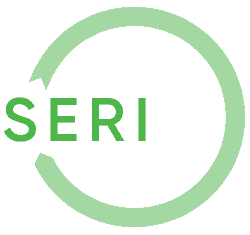Making a Difference
Knowledge sharing
Knowledge is Power
We believe that the majority of people, businesses, and organizations around the world want to be responsible with their electronics, but may not always know how. So, every chance we get we take the opportunity to provide better information, a different way of thinking, and challenge conventions. The more everyone knows, the greater the opportunity for positive outcomes. These are some of the ways that SERI is supporting research, partnerships, and the sharing of best practices.
IEMN
In late 2020, SERI took over the coordination of the International E-Waste Management Network (IEMN). Since it was first established in 2011 as a bilateral effort between the U.S. Environmental Protection Agency (U.S. EPA) and the Taiwan Environmental Protection Administration (Taiwan EPA), the IEMN has brought together environmental officials from Asia, Latin America, the Caribbean, Africa, and North America to exchange best practices on e-waste management. SERI envisions an international consortium that seeks to understand and address the opportunities and challenges to achieve a sustainable circular economy for electronics.
SERI will work with a steering committee of IEMN members to determine the activities and focus of the consortium. Participation will be open to electronics manufacturers, corporations, recyclers, researchers, among other engaged organizations, while maintaining the core emphasis on information sharing and capacity building among the participating governments. Activities are anticipated to include webinars, regional meetings, and networking opportunities, in addition to the annual IEMN Workshop.
For more information, Contact Garth Hickle, IEMN Coordinator +12029212260 or use our contact form.
Recycling Industry Operating Standard (RIOS)
SERI has established a cooperation arrangement between the R2 certification program and the RIOS™ certification program to help electronics facilities learn about and build their environment, health and safety, and quality management systems. The management system is the foundation by which R2 facilities create the structure needed to certify to R2. RIOS is one certification option for meeting these requirements in the R2 Standard. The RIOS standard is designed so that each requirement works seamlessly with the others to foster healthy, safe, sustainable recycling, along with consistent and high-quality production of products. This alliance provides new educational resources to R2 facilities to improve adoption of environmentally sound management practices and potentially lower the costs of implementation and auditing.
Other Education and Outreach Programs
SERI sponsored a practical handbook for processing of WEEE plastics, developed and published by Sustainable Recycling Industries. The handbook provides information for the identification of different types of plastics, those containing BFR’s, and how to process each without sophisticated equipment. It is very useful for the common recycler anywhere in the world with manual means for dismantling used electronics and is available for download at no cost.
SERI sponsored 250 grants to help R2 Certified facilities evaluate how GPS tracking might be used as an additional quality check when verifying their own downstream recycling chain information.
United Nations University E-Waste Academy
SERI is an active member of StEP, collaborating with organizations around the world to solve e-waste problems.
